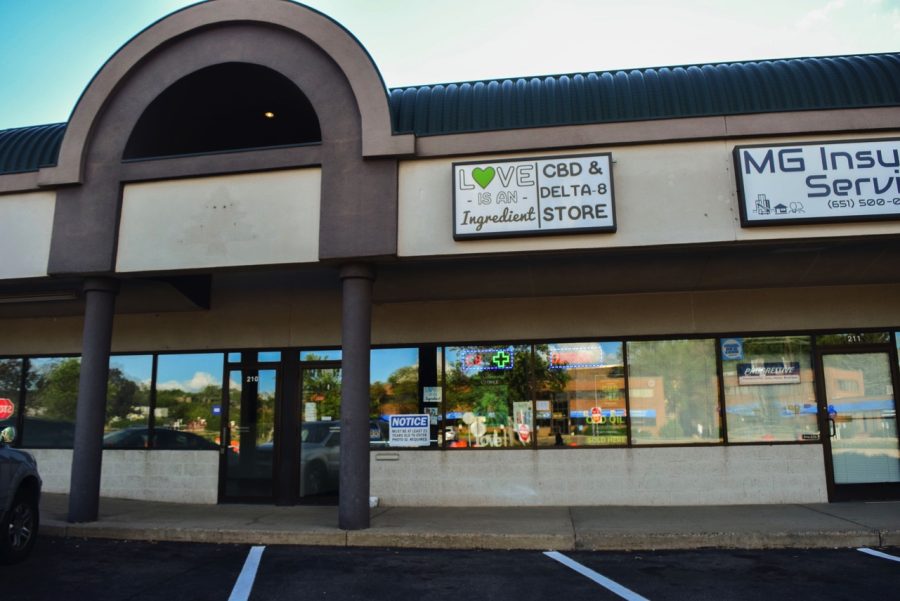After a new Minnesota law went into effect July 1 legalizing certain food and beverage products containing hemp-derived tetrahydrocannabinol (THC), Minnesota legislators try to clarify what has been a legal “gray area” for businesses and consumers.
The bill was part of a larger legislative package that the state Senate unanimously passed in May. As part of the new regulation, consumers ages 21 and over may purchase cannabinoid products such as gummies containing no more than five milligrams of hemp-derived THC per serving and 50 milligrams per container. THC products must also be clearly labeled and marketed.
THC and cannabidiol (CBD) are chemical compounds found in cannabis plants. Although they have similar structures and interactions with consumers’ bodies, THC is what produces the “high” sensation.
Hemp and marijuana-derived THC produce the same chemical effect on the user. Despite their similarities, marijuana-derived THC remains illegal in Minnesota.
State Rep. Heather Edelson (DFL) authored the bill for the House. Edelson, who co-chairs the state’s Task Force on Medical Cannabis Therapeutic Research, said the bill looks to help guidelines on products that were already being sold in the state.
“All of these products were being manufactured and consumed out there with no consumer protection around what people were taking,” Edelson said. “People assume if they go to their store, if something is being sold, it’s probably been vetted. Well, that wasn’t true.”
Federal hemp production has soared since U.S Congress legalized products containing no more than 0.3% hemp-derived THC with the 2018 Farm Bill, which Minnesota codified the following year. Since the Farm Bill passed, licenses for people and businesses to convert raw hemp into products such as edibles increased by more than 10 times, according to a 2021 report from the Minnesota Department of Agriculture.
Holding manufacturers accountable for products with no more than 0.3% THC has proven difficult in practice, Edelson said. Instead of completing the math on each individual product, law enforcement officials will now use checklists to inspect products’ serving and serving sizes in stores to ensure they don’t exceed the new legal limit.
Hemp, which is cannabis containing 0.3% or less of delta-9 THC was legalized in the Farm Bill along with delta-8 THC, which produces similar, but often less potent high effects. Cannabis plants are made up of hundreds of chemical compounds, including various forms of CBD and THC.
However, after the Farm Bill’s passing, Edelson said there was no regulatory authority exerted over the newly legalized products, leading to various THC products being illegally sold to consumers.
Sen. Kari Dziedzic (DFLS), who represents the University area in the state Senate, said the new law will provide people seeking pain relief with a new, safer and legal alternative to other drugs such as opioids.
“[Hemp] has been found to be safe, and it helps certain categories,” Dziedzic said. “Wanting more people to have that relief, I think would help, because opioids are not the answer, especially for the long term.”
Dziedzic also emphasized the importance of the new law in fighting racial injustice and said further legalizing marijuana would help prevent disproportionate, low-level drug convictions against Black residents.
The legality of different THC products in Minnesota has put many consumers, potentially unknowingly, at risk of violating state law, according to Edelson.
In a 2021 decision, the Minnesota Supreme Court ruled while hemp, as codified into state law, was legal in plant form, any amount of THC extracts in products such as cartridges and oils was guilty of a controlled-substance crime. Any product, including those CBD products with trace amounts of THC extract, became illegal to buy or sell after two years of state protection.
Edelson said the court’s decision created “a huge problem” for consumers and businesses and was a driving factor to create her bill.
“We’re taking people that want to be law-abiding citizens and giving them access to a product that’s legal and safe,” Edelson said. “For the business industry that’s selling these products, they’re able … to know what’s legal, what they can sell and who they can sell it to. That’s a positive thing, and they can start to develop that industry.”
The new law is already affecting businesses, including those around the University. Zean Abdallah, owner of Campus Market & Tobacco in Dinkytown, said the new hemp legalization caused an immediate spike in sales.
“I really didn’t expect [the new law], but for what it was, it made sense,” Abdallah said. “The following day, I had about 20 customers within the first three hours of opening come in and ask me about the new products.”
Other businesses near the University that currently sell CBD products, such as Adam’s Grocery and Tobacco in southeast Como and Fresh Thyme in Prospect Park, have not yet begun selling hemp products.
Newly legalized products take extra time to be put on shelves due to quality control and to ensure the manufacturing process is transparent, Abdallah said. Once available, Abdallah said it’s important for consumers, especially new ones, to start small and be aware of what you’re taking.
“This stuff affects everyone differently,” Abdallah said. “Some people might get a little more high from a gummy than another person would … some people get anxiety, some people get paranoid … it’s all an experiment.”








